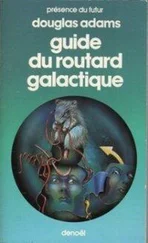Douglas Adams - The Salmon of Doubt
Здесь есть возможность читать онлайн «Douglas Adams - The Salmon of Doubt» весь текст электронной книги совершенно бесплатно (целиком полную версию без сокращений). В некоторых случаях можно слушать аудио, скачать через торрент в формате fb2 и присутствует краткое содержание. Жанр: Фантастика и фэнтези, на английском языке. Описание произведения, (предисловие) а так же отзывы посетителей доступны на портале библиотеки ЛибКат.
- Название:The Salmon of Doubt
- Автор:
- Жанр:
- Год:неизвестен
- ISBN:нет данных
- Рейтинг книги:4 / 5. Голосов: 1
-
Избранное:Добавить в избранное
- Отзывы:
-
Ваша оценка:
- 80
- 1
- 2
- 3
- 4
- 5
The Salmon of Doubt: краткое содержание, описание и аннотация
Предлагаем к чтению аннотацию, описание, краткое содержание или предисловие (зависит от того, что написал сам автор книги «The Salmon of Doubt»). Если вы не нашли необходимую информацию о книге — напишите в комментариях, мы постараемся отыскать её.
The Salmon of Doubt — читать онлайн бесплатно полную книгу (весь текст) целиком
Ниже представлен текст книги, разбитый по страницам. Система сохранения места последней прочитанной страницы, позволяет с удобством читать онлайн бесплатно книгу «The Salmon of Doubt», без необходимости каждый раз заново искать на чём Вы остановились. Поставьте закладку, и сможете в любой момент перейти на страницу, на которой закончили чтение.
Интервал:
Закладка:
Master? Great genius? Oh yes. One of the most blissful joys of the English language is the fact that one of its greatest practitioners ever, one of the guys on the very top table of all, was a jokesmith. Though maybe it shouldn’t be that big a surprise. Who else would be up there? Austen, of course, Dickens and Chaucer. The only one who couldn’t make a joke to save his life would be Shakespeare.
Evelyn Waugh, I think, compared Wodehouse’s world to a pre-fall Eden, and it’s true that in Blandings, Plum—if I may call him that—has managed to create and sustain an entirely innocent and benign Paradise, a task that, we may recall, famously defeated Milton, who was probably trying too hard. Like Milton, Wodehouse reaches outside his Paradise for the metaphors that will make it real for his readers.
But where Milton reaches, rather confusingly, into the world of classics gods and heroes for his images
(like a TV writer who only draws his references from other TV shows), Wodehouse is vividly real. “She was standing scrutinising the safe, and heaving gently like a Welsh rarebit about to come to the height of its fever.” “The Duke’s moustache was rising and falling like seaweed on an ebb-tide.” When it comes to making metaphors (well, all right, similes if you insist), you don’t mess with Master. Of course, Wodehouse never burdened himself with the task of justifying the ways of God to Man, but only of making Man, for a few hours at a time, inextinguishably happy. Wodehouse better than Milton? Well, of course it’s an absurd comparison, but I know which one I’d keep in the balloon, and not just for his company, but for his art.
We Wodehouse fans are very fond of phoning each other up with new discoveries. But we may do the great man a disservice when we pull out our favourite quotes in public, like “Ice formed on the butler’s upper slopes,” or “... like so many substantial Americans, he had married young and kept on marrying, springing from blonde to blonde like the chamois of the Alps leaping from crag to crag” or (here I go again) my current favourite, “He spun round with a sort of guilty bound, like an adagio dancer surprised while watering the cat’s milk” because, irreducibly wonderful though they are, by themselves they are a little like stuffed fish on a mantelpiece. You need to see them in action to get the full effect. There is not much in Freddie Threepwood’s isolated line “I have here in this sack a few simple rats” to tell you that when you read it in context you are at the pinnacle of one of the most sublime moments in all English literature.
He doesn’t need to be serious. He’s better than that. He’s up in the stratosphere of what the human mind can do, above tragedy and strenuous thought, where you will find Bach, Mozart, Einstein, Feynman, and Louis Armstrong, in the realms of pure, creative playfulness.
From the Introduction to Sunset at Blandings (Penguin Books)
Tea One or two Americans have asked me why the English like tea so much, which never seems to them to be a very good drink. To understand, you have to make it properly.
There is a very simple principle to the making of tea, and it’s this—to get the proper flavour of tea, the water has to be boilING (not boilED) when it hits the tea leaves. If it’s merely hot, then the tea will be insipid. That’s why we English have these odd rituals, such as warming the teapot first (so as not to cause the boiling water to cool down too fast as it hits the pot). And that’s why the American habit of bringing a teacup, a tea bag, and a pot of hot water to the table is merely the perfect way of making a thin, pale, watery cup of tea that nobody in their right mind would want to drink. The Americans are all mystified about why the English make such a big thing out of tea because most Americans HAVE NEVER HAD
A GOOD CUP OF TEA. That’s why they don’t understand. In fact, the truth of the matter is that most English people don’t know how to make tea anymore either, and most people drink cheap instant coffee instead, which is a pity, and gives Americans the impression that the English are just generally clueless about hot stimulants.
So the best advice I can give to an American arriving in England is this: Go to Marks and Spencer and buy a packet of Earl Grey tea. Go back to where you’re staying and boil a kettle of water. While it is coming to the boil, open the sealed packet and sniff. Careful—you may feel a bit dizzy, but this is in fact perfectly legal. When the kettle has boiled, pour a little of it into a teapot, swirl it around, and tip it out again. Put a couple (or three, depending on the size of the pot) of tea bags into the pot. (If I was really trying to lead you into the paths of righteousness, I would tell you to use free leaves rather than bags, but let’s just take this in easy stages.) Bring the kettle back up to the boil, and then pour the boiling water as quickly you can into the pot. Let it stand for two or three minutes, and then pour it into a cup. Some people will tell you that you shouldn’t have milk with Earl Grey, just a slice of lemon. Screw them. I like it with milk. If you think you will like it with milk then it’s probably best to put some milk into the bottom of the cup before you pour in the tea.* If you pour milk into a cup of hot tea, you will scald the milk. If you think you will prefer it with a slice of lemon, then, well, add a slice of lemon.
Drink it. After a few moments you will begin to think that the place you’ve come to isn’t maybe quite so strange and crazy after all.
MAY 12, 1999
The Rhino Climb short rainy season in Kenya, but the sun burned off the morning dampness in minutes. I’m slathered in sunblock, the road stretches off into the distant heat haze, and my legs are settling in nicely. Dotted along the road ahead and behind me are other walkers, some striding vigorously, others appearing just to amble, but all in fact moving at the same speed. One of them is wearing a large, grey, sculptural edifice, made out of a painted woven plastic fabric stretched over a metal frame. A large horn bobs along in front of it. The thing is a grotesque but oddly beautiful caricature of a rhinoceros moving along with
*This is socially incorrect. The socially correct way of pouring tea is to put the milk in after the tea.
Social correctness has traditionally had nothing whatever to do with reason, logic, or physics. In fact, in England it is generally considered socially incorrect to know stuff or think about things. It’s worth bearing this in mind when visiting. swift, busy strides. The sun beats down. Lopsided lorries grind their way dangerously past us. The drivers shout and grin at our rhinoceros. When we pass, as we frequently do, lorries that have clearly just rolled over and collapsed on the side of the road, we wonder if it was anything to do with us. The other walkers have all been walking for several days now, from the shore at Mombasa along the main highway to the truck stop at Voi, the local centre of the universe. I joined them here last night, rattling in by Land-Rover from Nairobi with my sister Jane, who’s been doing some work for Save the Rhino International, which is what we are all here to support. From here we will follow the road on as the tarmac gradually peters out toward the Tanzanian border.
Over the border lies Mount Kilimanjaro, the tallest mountain in the world. It is to the peak of Kilimanjaro that the expedition is intending to climb—a small bunch of Englishman out walking miles a day in the midday sun and taking turns at wearing a large rhino costume. Mad dogs have thrown in the towel long ago. What’s all this, I expect you’re thinking, about “the tallest mountain in the world”?
Everest, surely, deserves at least an honourable mention in this category? Well, it all depends or your point of view. Certainly, Everest stands a sturdy 29,028 feet above sea level, which is, in its way, impressive. But if you were going to climb Everest, you would probably start, if you were using a reliable guide, somewhere in the Himalayas. Anywhere in the Himalayas is pretty damn high to start with and so, to hear some people tell it, it’s just a smartish jog to do the last little bit to the actual top of Everest. The way to keep it interesting these days is to do it without oxygen or in your underpants or something.
Читать дальшеИнтервал:
Закладка:
Похожие книги на «The Salmon of Doubt»
Представляем Вашему вниманию похожие книги на «The Salmon of Doubt» списком для выбора. Мы отобрали схожую по названию и смыслу литературу в надежде предоставить читателям больше вариантов отыскать новые, интересные, ещё непрочитанные произведения.
Обсуждение, отзывы о книге «The Salmon of Doubt» и просто собственные мнения читателей. Оставьте ваши комментарии, напишите, что Вы думаете о произведении, его смысле или главных героях. Укажите что конкретно понравилось, а что нет, и почему Вы так считаете.







